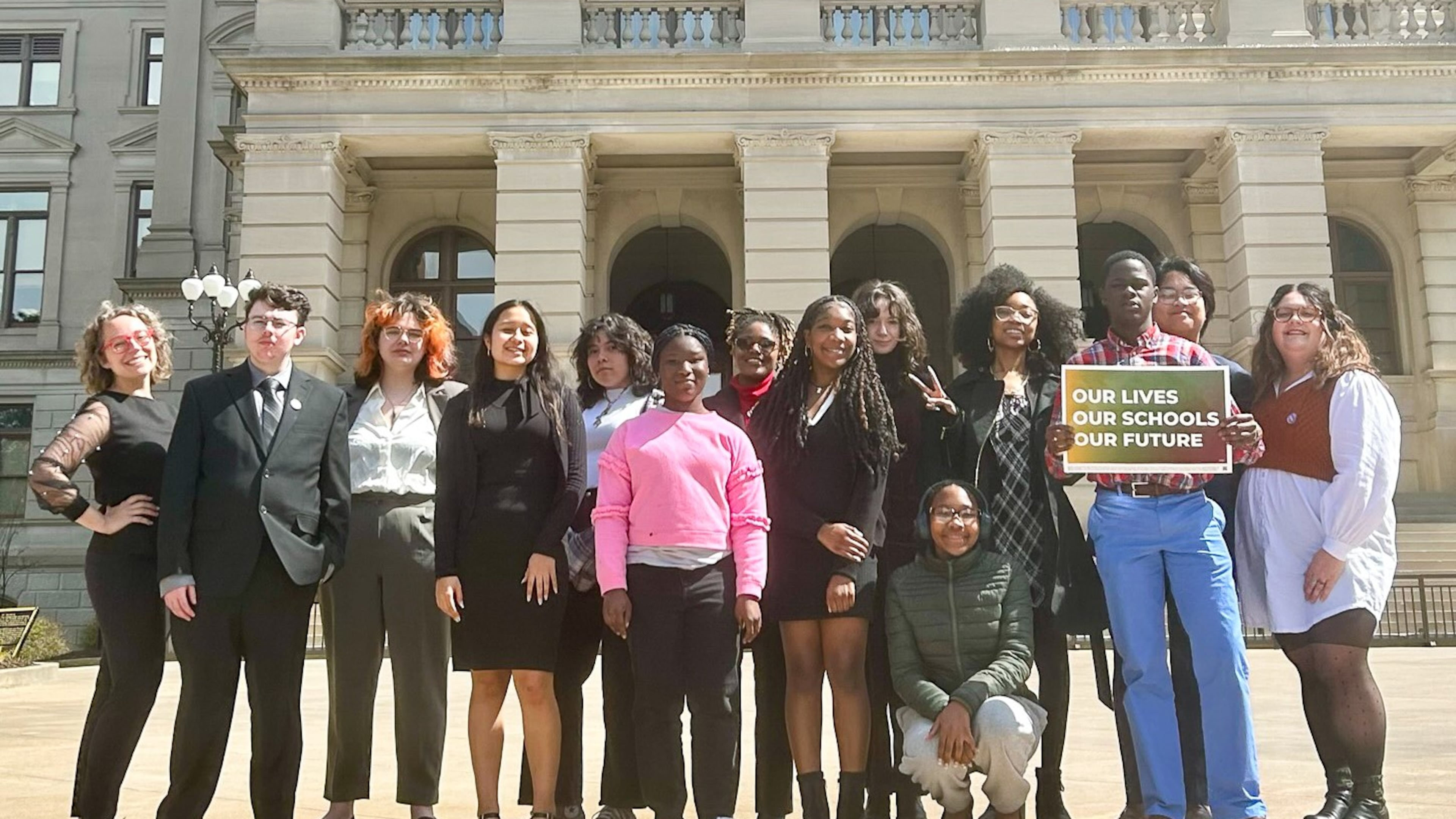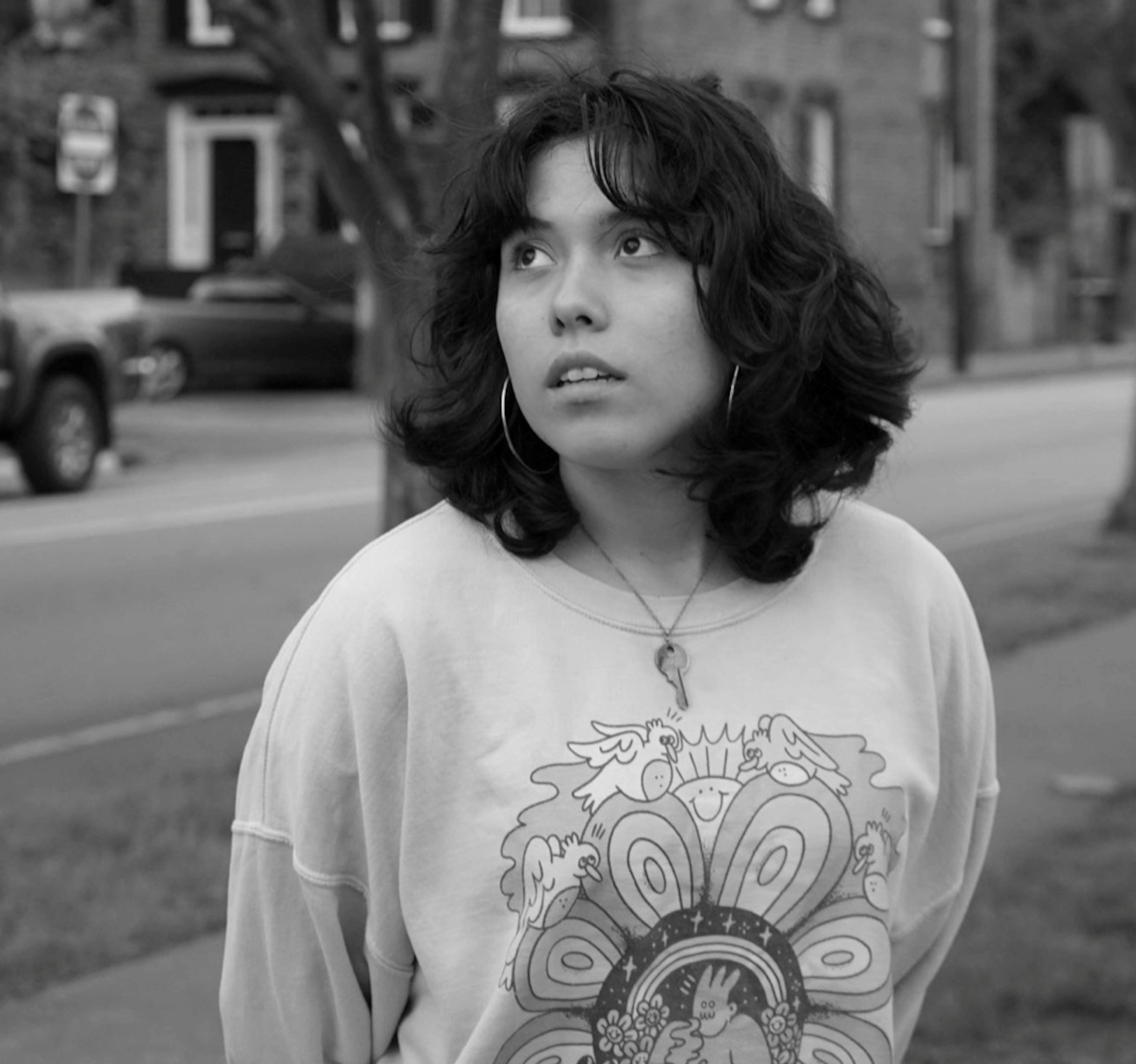Opinion: As public school students, we oppose private school vouchers

Zoe Jama Hutton is a student at Savannah Arts Academy and an organizer with Deep Center and Georgia Youth Justice Coalition.
In a guest column, Hutton discusses Senate Bill 233, a voucher bill that could come up for a vote today in the House. She and other youth advocates have been speaking out against vouchers at legislative hearings.
By Zoe Jama Hutton
When I reach the podium, I scan the faces of the legislators watching me wade through the sea of suits and blazers. There are a few shallow smiles, some blank gazes — nothing reassures me of my place in the room. I look back into the crowd, see my friends who’ve also testified, and straighten because their presence reminds me that my story will speak for thousands of students across this state with similar experiences.
“Hi, everyone! My name is Zoe,” I start. “Thank you for having me. I’m a high school student from Savannah, and I’m here to testify against Senate Bill 233.”
Maybe it seems strange that a high school student would drive four hours from Savannah to the Georgia Capitol to speak at an 8 a.m. hearing, but it shouldn’t. When a committee hears a bill that can drastically transform public education, student voices should be among the first considered. Our lived experiences as public school students make us the experts in the room.

Private school vouchers, like those proposed in SB 233, take millions of dollars from Georgia public schools and hurt the students who attend them — that includes me, my friends and classmates, and each of the 1.6 million public school students across the state.
My testimony before the committee is short. I immigrated to the United States from Ecuador when I was just a baby. My family struggled financially for years. My brothers and I began to go to a local private school after my mom found a job teaching there.
Over the five years I attended private school, I was one of four students of color. Even the school’s personnel staff was nearly 100% white. I felt like an outcast to so many of my peers. My experiences and identity were clearly not reflected in my education there.
I, like so many other minority students at private schools, eventually transferred to a public school to be in a more diverse space.
Vouchers have a long and shameful history of exacerbating racial division. Often, cities funneled public education funding to private “segregation academies,” where white students received better resources than students of color. Legislators who favor passing SB 233 are ignoring that longstanding history, undermining the resources, accountability measures, and support systems needed to help under-resourced communities thrive.
SB 233, if passed, will establish a system of private school subsidization in which the state provides $6,500 to students districted for low-performing public schools to be put toward private school tuition.
Some of the legislators I face today have argued that this will give low-income students at “failing” public schools a way out, but low-income students themselves know that this is not the truth.
Earlier in the hearing, Mason Goodwin, a recent graduate from Atlanta Public Schools, testified that his high-poverty high school was once on the state’s list of failing schools. However, proper public investment, not vouchers, eventually enabled him and his classmates to thrive.
Mason said our communities want investment in our schools for every child to succeed, not just families who can afford private schools. And $6,500 is a tiny portion of the total cost of the highest-performing Georgia private schools, with tuition ranging from $20,000 to $50,000 per year. For low-income students, $6,500 does not make private schooling a feasible option.
My mother is now a public elementary school teacher, and last night I asked her how often she pays for resources out of pocket. She responded, “Always, Zoe. I always buy resources. At the very least once a month. Many teachers do that.”
Reallocating funding from public schools to individuals attending private schools can only hurt our public education system and the large majority of students it serves. That means that my mom, and many other teachers across the state, are funding public schools from their own personal bank accounts.
As a state, we’d give our public resources to private schools, all while legislators continue to sidestep the opportunity to adjust our outdated funding formula to fully support the needs of all Georgia’s students.
“For the betterment of my public school system, I’m asking you to vote against this bill,” I finish.
I turn and walk back through seats filled with lobbyists, lawyers and nonprofit directors, to where I can see my friends grinning at me, silently cheering. I can’t help but smile back. We’re all so different — from Savannah to Atlanta, ages 14 to 21 — but we’ve come together around an issue that will impact all public school kids like us.
My friend Sa’Real testified, too, telling lawmakers that her single mother wouldn’t have been able to afford to send any of her three children to a private school even with a voucher and wouldn’t be helped by this bill. They’d be left behind. Sa’Real described the damaging effects of underfunding public schools: She attended classes in trailers, saw rats roaming the halls and had counselors who could barely manage their caseloads.
Georgia State University student James Wilson went to a high school with high percentages of children in poverty that overwhelmingly served Black students. His school was identical to many of the schools our state now deems as failing based on test scores.
“For almost my entire lifetime, our schools have been inadequately funded. Our schools are failing because our Legislature, for so long, has denied them the funding and resources we need. We must fully fund the QBE formula, add a poverty weight, and increase counselor funding. We must fix the problems we’ve left unresolved for so long,” James told the legislators.
We wait through more testimony, texting back and forth, listening attentively until a vote is called.
The bill passes out of committee. There’s a moment of pause as we try to understand what happened and what we ought to do next. James speaks first, a smile already returning to his face.
“Now, the bill goes to the floor. If it passes, we’ll all call our senators,” James advises us. “We’ll make sure Brian Kemp knows that students across Georgia reject this bill and that if it goes to his desk and he passes it, he’s ignoring the voices of those his decision impacts most. That’s how we win.”
We’re calling on our lawmakers to listen to our demands of a better future for ourselves — one where all of Georgia’s students thrive through an adequately funded, inclusive public education.

